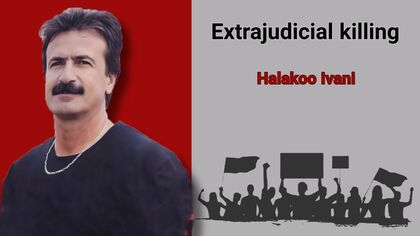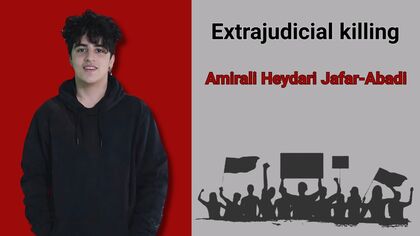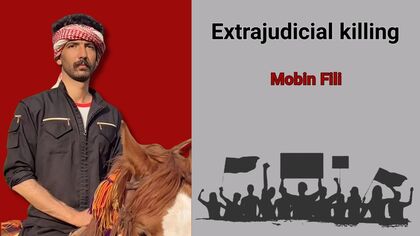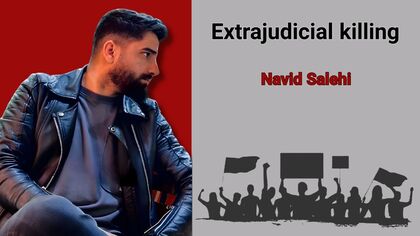Iran's Ahmadinejad ups rates to stem money crisis
20:15 - 25 January 2012

Kurdpa - Iranian President Mahmoud Ahmadinejad agreed to increase bank interest rates on Wednesday, hoping to halt a spiralling currency crisis intensified by new Western sanctions.
\"The economy minister has announced Ahmadinejad has agreed with the approval of the Money and Credit Council to increase interest rates on bank deposits to up to 21 percent,\" the official IRNA news agency reported.
Sanctions the United States and the European Union announced over the last month - targeting Iran\'s vital oil exports and its central bank - exacerbated fears about the economy and worsened a dash for hard currency.
The rial was already losing value since a decision last April to cut interest paid on bank deposits to a range of a 12.5-15.5, below inflation which is currently around 20 percent, prompting many Iranians to withdraw savings and buy gold and foreign currency and pushing up the price of both.
But the dash for those safe havens accelerated sharply after the new sanctions were announced, resulting in the rial losing 50 percent of its value against the price of dollars available on the open market in just one month.
Monday\'s decision marks a policy U-turn for Ahmadinejad, who faces a political test in March 2 parliamentary election. He previously vetoed efforts by Central Bank Governor Mahmoud Bahmani to increase rates.
The rial\'s slide is a huge risk to already rising inflation as Iran is heavily reliant on imported consumer and intermediate goods whose prices have surged as the rial has depreciated.
The West hopes the economic pressure will force Iran to curb the nuclear work they fear is aimed at making bombs but which Tehran says is entirely peaceful.
Ahmadinejad\'s representative in parliament - which is already highly critical of the president and may become more so after March 2 - said the new policy would burst what he called the bubble of gold and dollar prices.
\"The effects of the new decision will be clear in the market very soon and the bubbles being created for foreign currency and gold will be removed,\" the ISNA news agency quoted Mohammad Reza Mirtajedini as saying.
The deputy head of parliament\'s economics committee criticised the government for reacting late to the crisis which he said had \"no reasonable, logical basis\".
\"Increasing the bank deposit interest rates is an appropriate tool for people\'s investments but doing it in a hasty manner and the current inflamed situation of the market will not solve any problem,\" Mostafa Motavarzadeh told the semi-official Fars news agency.
The price of 8.133-gram gold coins dropped on the news, local media reported, to 8,500,000 rials, reversing most of last week\'s 45 percent increase when the price rose to 10,100,000.
The effect on the price of dollars was negligible however with ISNA saying the price had fallen on the news to 22,500 rials from 23,000 rials - still double the central bank\'s official \"reference rate\" of 11,293 rials.
However, exchange agencies contacted by Reuters said they had no dollars to sell, reflecting either a shortage of notes or a reluctance to sell in such a volatile atmosphere.
Source - Reuters
\"The economy minister has announced Ahmadinejad has agreed with the approval of the Money and Credit Council to increase interest rates on bank deposits to up to 21 percent,\" the official IRNA news agency reported.
Sanctions the United States and the European Union announced over the last month - targeting Iran\'s vital oil exports and its central bank - exacerbated fears about the economy and worsened a dash for hard currency.
The rial was already losing value since a decision last April to cut interest paid on bank deposits to a range of a 12.5-15.5, below inflation which is currently around 20 percent, prompting many Iranians to withdraw savings and buy gold and foreign currency and pushing up the price of both.
But the dash for those safe havens accelerated sharply after the new sanctions were announced, resulting in the rial losing 50 percent of its value against the price of dollars available on the open market in just one month.
Monday\'s decision marks a policy U-turn for Ahmadinejad, who faces a political test in March 2 parliamentary election. He previously vetoed efforts by Central Bank Governor Mahmoud Bahmani to increase rates.
The rial\'s slide is a huge risk to already rising inflation as Iran is heavily reliant on imported consumer and intermediate goods whose prices have surged as the rial has depreciated.
The West hopes the economic pressure will force Iran to curb the nuclear work they fear is aimed at making bombs but which Tehran says is entirely peaceful.
Ahmadinejad\'s representative in parliament - which is already highly critical of the president and may become more so after March 2 - said the new policy would burst what he called the bubble of gold and dollar prices.
\"The effects of the new decision will be clear in the market very soon and the bubbles being created for foreign currency and gold will be removed,\" the ISNA news agency quoted Mohammad Reza Mirtajedini as saying.
The deputy head of parliament\'s economics committee criticised the government for reacting late to the crisis which he said had \"no reasonable, logical basis\".
\"Increasing the bank deposit interest rates is an appropriate tool for people\'s investments but doing it in a hasty manner and the current inflamed situation of the market will not solve any problem,\" Mostafa Motavarzadeh told the semi-official Fars news agency.
The price of 8.133-gram gold coins dropped on the news, local media reported, to 8,500,000 rials, reversing most of last week\'s 45 percent increase when the price rose to 10,100,000.
The effect on the price of dollars was negligible however with ISNA saying the price had fallen on the news to 22,500 rials from 23,000 rials - still double the central bank\'s official \"reference rate\" of 11,293 rials.
However, exchange agencies contacted by Reuters said they had no dollars to sell, reflecting either a shortage of notes or a reluctance to sell in such a volatile atmosphere.
Source - Reuters



